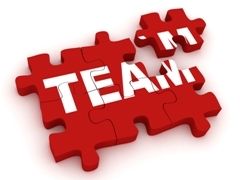
Building a Sales Team - What goes into it?
01 Apr, 20153 MinutesWhat is the recipe for a world-class sales team? It’s a cornerstone of every thriving o...

What is the recipe for a world-class sales team?
It’s a cornerstone of every thriving organisation and essential for business growth, yet the recruitment and development of a sales team can present considerable challenges for any business manager. With the current economic climate and many organizations across the country setting objectives to increase sales, profitability, break into new territories or increase market share, it’s more important now than ever to ensure concrete steps are taken to translate those ambiguous objectives into tangible sales results. So just what is the recipe for a world-class sales team?
A structured recruitment, development, progression and rewards programme can not only impact performance levels but directly influence staff retention and job satisfaction levels, productivity and activity figures and, in turn, sales and revenue generation. Getting the right ingredients and mixing them accordingly is therefore paramount.
Step one, ‘Evaluate, Analyze, Assess’, builds upon the concept of sales needs analysis to identify current performance and skill gaps within an existing sales team. The results form the basis for a structured development plan that encompasses recruitment, training, development, management and reward of sales members, setting a concrete strategy for the future of the business.
The resume and references can only offer limited insight into the true qualities of any given candidate; when it comes to hiring the right people, the sales recruitment process needs to go a step further. Richard Branson recently observed that personality forms an central part in the decision to hire; practical tips into obtaining quality, rather than quantity, can ensure managers don’t commit a ‘hiring howler’ and are confident that those people coming into their sales team are world-class ‘top guns’ who represent a good investment for the future of the business.
The next step is an investment into induction, training and development, ensuring those recruits are equipped with all necessary knowledge and skills required to perform their roles within the business. An on-going process, sales training should incorporate product knowledge with soft skills, incentivising and benchmarking sales members to ensure underperformers are prevented from slipping through the net. Supplementing with a sales accreditation programme may also contribute to improved results in performance, while the recruitment and development of sales managers to lead teams ensures accountability and on-the-job coaching.
Finally, a carefully considered reward and incentive package that recognises achievements and combines financial reward with personal acknowledgement can offer motivation in an increasingly challenging industry that sees sales teams battle countless rejections from prospects, long hours, tough targets and slow periods in a turbulent economic climate.


